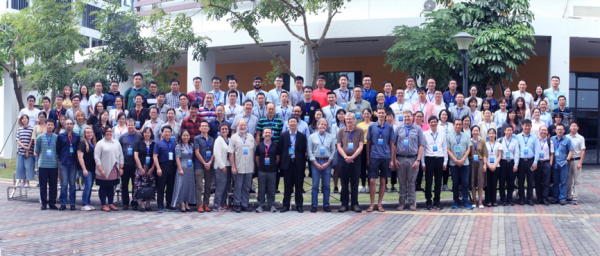Over the weekend, the Department of Ocean Science and Engineering (OSE) at Southern University of Science and Technology worked with the Shenzhen Key Laboratory of Archaeal Earth, the South China Sea Institute of Oceanology (SCIO) of the Chinese Academy of Sciences (CAS) and the National Natural Science Foundation of China (NSFC) to host the International Workshop on Geo-Omics of Archaea (IWGOA). OSE Professor Zhang Chuanlun co-chaired IWGOA with University of Nevada Las Vegas (UNLV) Professor Brian Hedlund. More than 100 experts & scholars from famous universities and research institutions from around the world attended IWGOA.
Archaeal Earth is an important & emerging discipline in biogeochemistry and IWGOA aims to promote continued cooperation in key technical research areas of this field. As archaea is one of the three major life forms on Earth, it is a major research focus for marine biogeochemical research. They can survive in a vast array of extreme environmental conditions, and understanding how they can survive in those conditions could be developing commercially viable applications in fields like medicine, public health, environmental management and energy development.
This iteration of IWGOA focused on the evolution, metabolism, ecology and biogeochemistry of archaea. Experts discussed a wide range of issues in depth about archaea. Scholars also shared the stage with graduate students & experts in sharing their latest research results. Special attendees to IWGOA included American Academy of Engineering fellow David A. Stahl, CAS Academician Zhao Guoping, American Society of Microbiology (ASM) fellow William B. Whitman, Japan Agency for Marine-Earth Science and Technology (JAMSTEC) researcher Takuro Nunoura and University of Queensland (UQ) research Christian Rinke.

Hosting IWGOA was an important reflection of Shenzhen’s role in the Greater Bay Area and the development of the Shenzhen Ocean Center City. IWGOA provided continued scientific research cooperation in the oceanic sciences across the globe while serving the development of our understanding of the ocean.
Proofread ByXia Yingying
Photo ByDepartment of Ocean Science and Engineering